- Home
- international
- news
- How Sergei Shoigu went from Putin's wilderness bestie to the scapegoat for Russia's failures in Ukraine
How Sergei Shoigu went from Putin's wilderness bestie to the scapegoat for Russia's failures in Ukraine
Sophia Ankel

- Russia's Minister of Defense, Sergei Shoigu, is a close ally and friend of Vladimir Putin.
- He had a steady ascent through Russia's elite, and was considered a possible Putin successor.
This is Sergei Shoigu, Russian President Vladimir Putin's right-hand man.
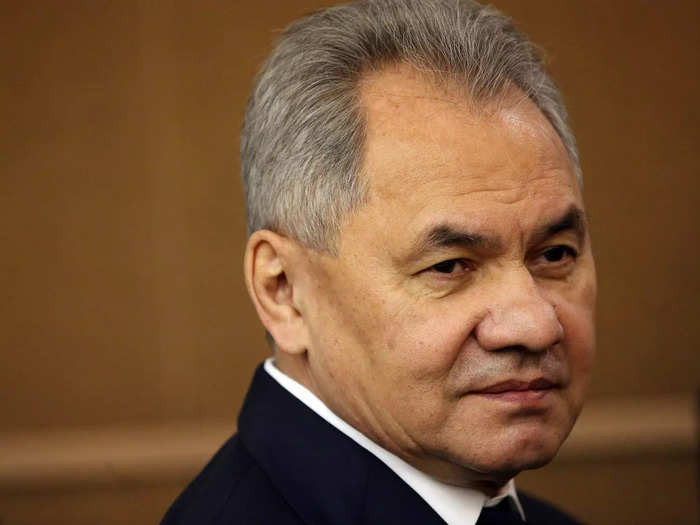
As Russia's Minister of Defense, he is responsible for its invasion of Ukraine.
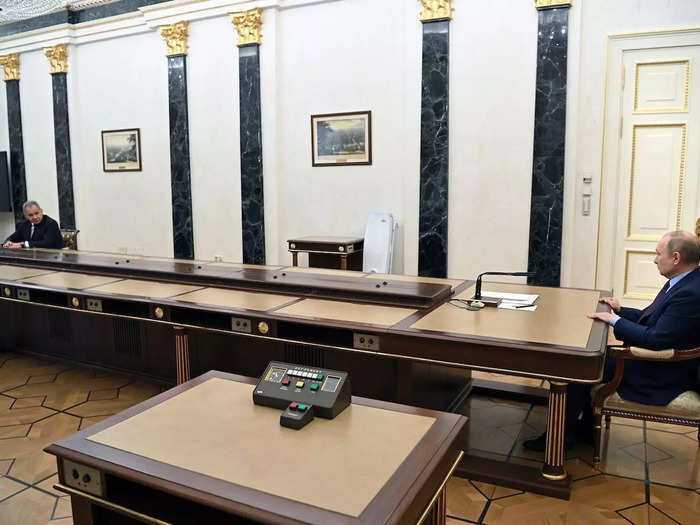
But the stark failures of the Russian army there have undermined his decades-long ascent to the top rungs of power.
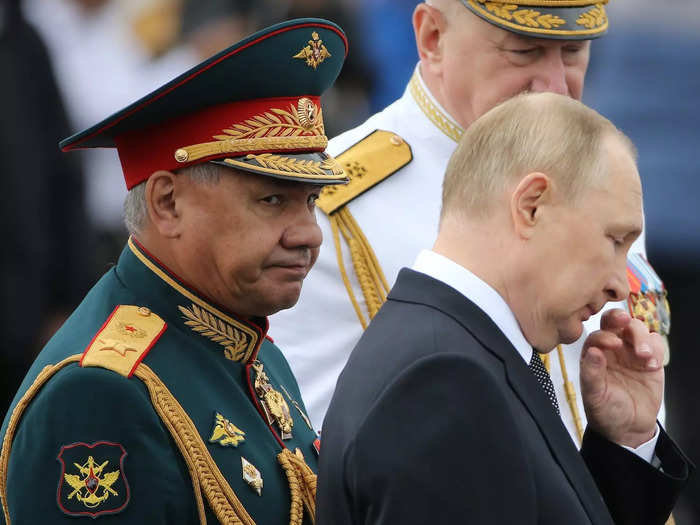
Shoigu was born in 1955 in the remote town of Chadan in Siberia. The Soviet Union was a world power and the Cold War just beginning.
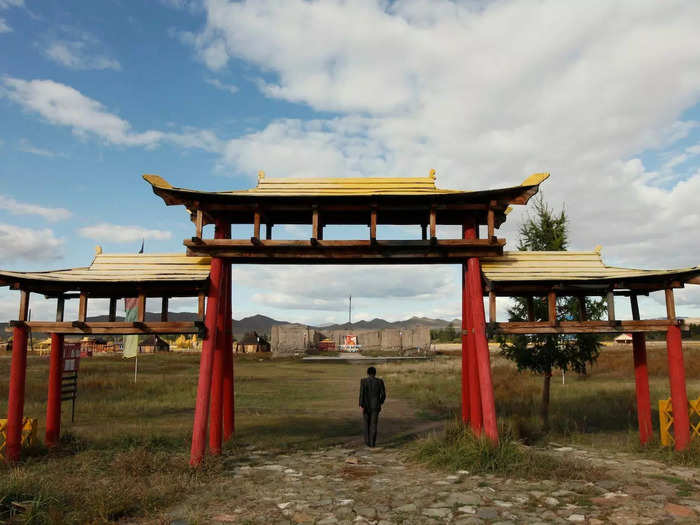
The town is close to the Mongolian border.
Shoigu's mother was Russian but born in Ukraine, while his father was Tuvan — an ethnic group that is indigenous to Siberia.
Source: The Moscow Times
Unlike other people in Putin's inner circle, Shoigu was not educated in St. Petersburg or Moscow.
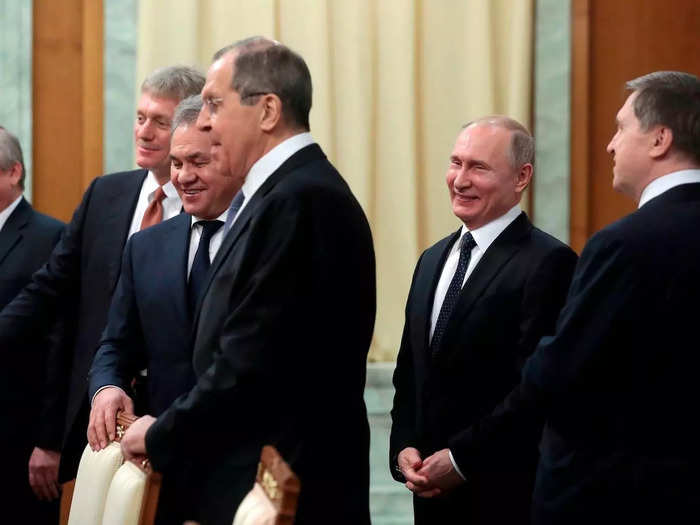
In 1977, Shoigu graduated from the Krasnoyarsk Polytechnic Institute in Siberia with a degree in civil engineering. He went on to work on a variety of major construction projects in the region.
"Shoigu is the only figure within Russian President Vladimir Putin's inner circle who isn't either an old KGB buddy or an old friend from St. Petersburg," Mark Galeotti, who heads the Russia-focused consultancy Mayak Intelligence, told Insider.
Putin was born and studied in St. Petersburg and spent much of his early career there.
Source: The Kyiv Post
Despite being Russia's Defense Minister, Shoigu never served in the military.
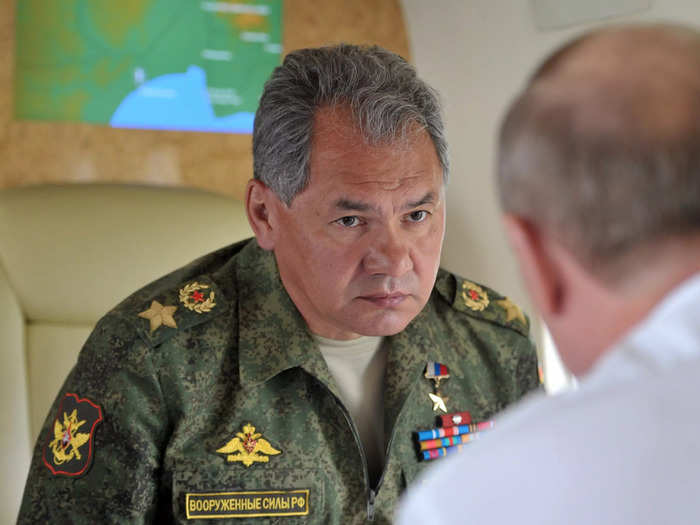
He wears awards on his uniform that look like combat medals, despite his lack of battlefield experience.
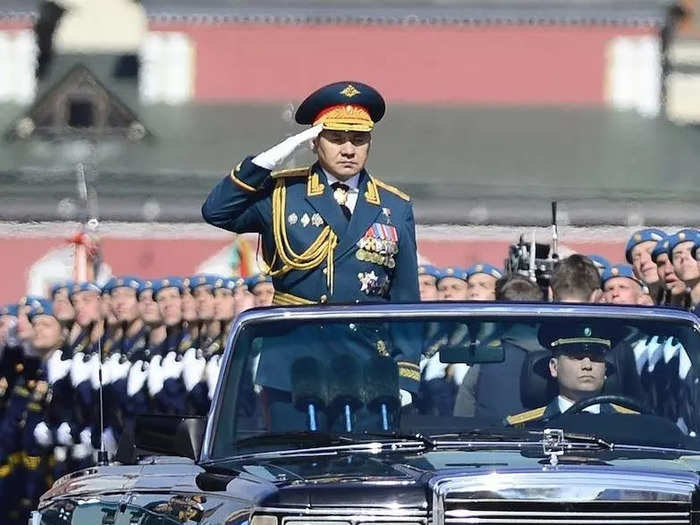
Shoigu's official profile lists a string of presidential and state awards for his time in government, while his Russian-language Wikipedia page lists more than 70 separate honors.
They include medals from his own defense ministry for implementing policies there, and also mass awards marking events like the 300th anniversary of the founding of St. Petersburg.
Radio Free Europe, the US-funded outlet, reported last year that Shoigu has a fascination with medals, and implemented hundreds of new ones for the Russian military, many of which are not to do with combat.
After working in various roles for construction companies in Siberia, Shoigu moved to Moscow in 1990 to lead the state's committee for construction and architecture.
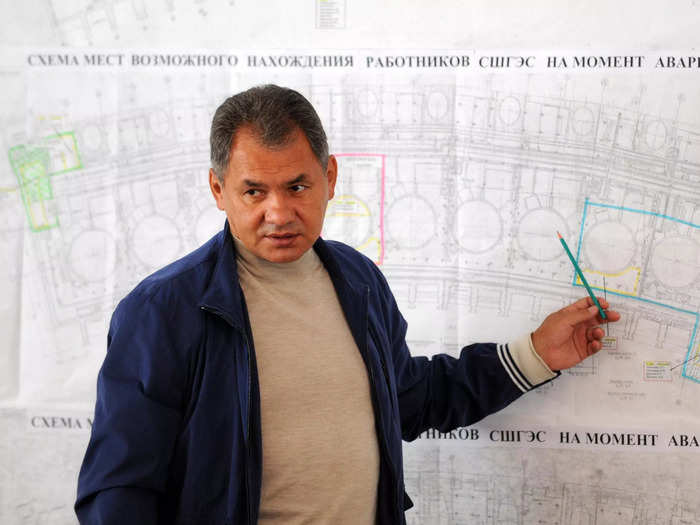
Source: The Moscow Times
In 1991, while he was there, the Soviet Union collapsed, plunging Russia into a period of instability and unrest.
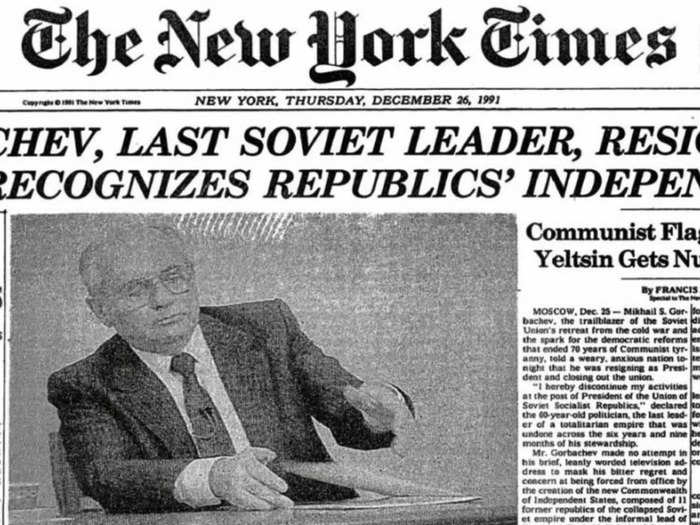
Out of the chaos, Russia gained its first president — Boris Yeltsin, a personal friend of Shoigu. He was soon promoted to lead the newly-established Russian Rescue Corps.
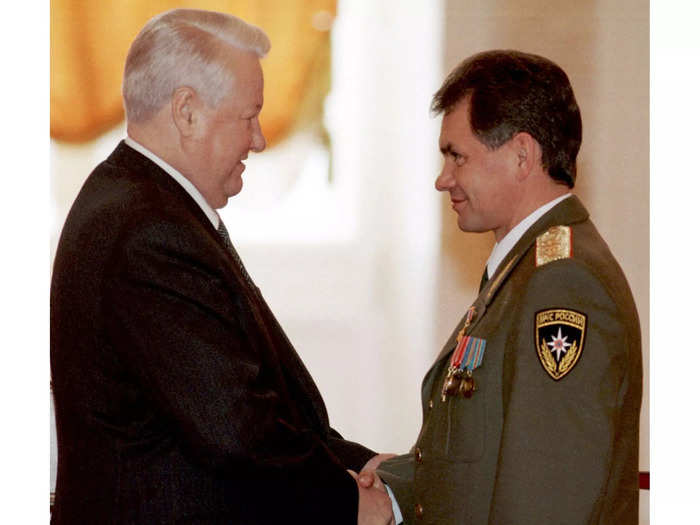
In the Russian Rescue Corps, Shoigu was responsible for the rescue and disaster response system, The Moscow Times reported.
In his role, Shoigu would be the first to appear at any major or minor disaster sites, presenting himself as a hero.
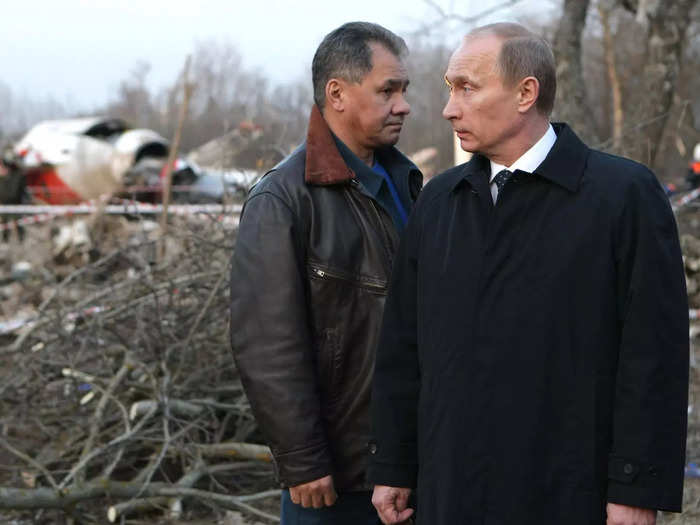
"He had a big PR team, let's be perfectly honest," Galeotti told Insider.
He stayed on the job for 21 years, even after Russian President Vladimir Putin took over from Yeltsin.
Source: The Moscow Times
When Putin rose to power in 1999, the two became very close.
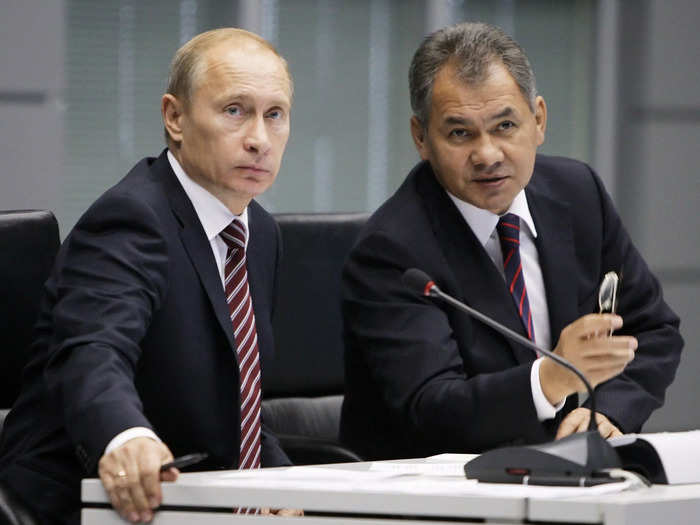
Shoigu's successful record and large public profile seemed to appeal to Putin.
In 1999, he picked Shoigu to be one of the leaders of his party, United Russia, giving him the opportunity to build a political base.
Thirteen years later, in 2012, Putin promoted Shoigu briefly to be the governor of the Moscow region, and from there to run the defense ministry.
This gave Shoigu a role on the world stage and a central place in Russia's clashes with the West.
Shoigu and Putin would often be photographed together. They took regular vacations in the Siberian woods, where they would go fishing or hiking.
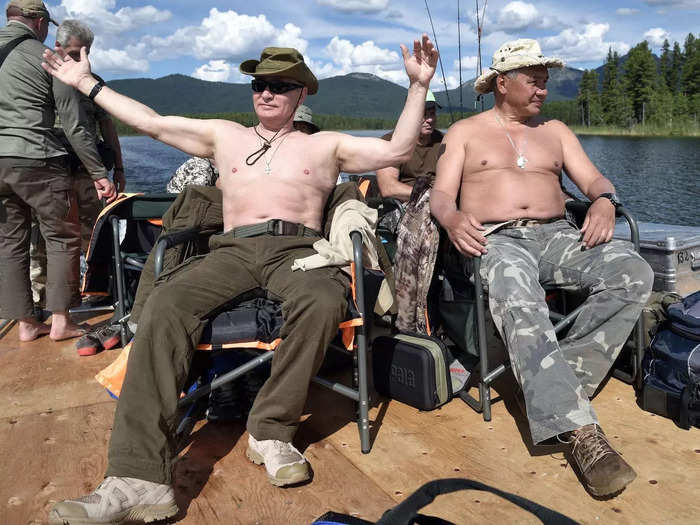
Their most recent vacation together appears to have been in March 2021.
Source: The Kremlin
As the president of the Russian Geographical Society, Shoigu would also indulge Putin's interest in the outdoors.
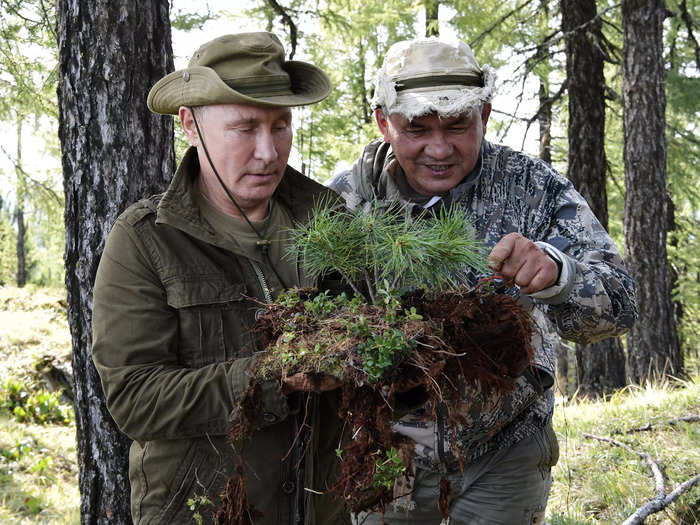
"Putin and Shoigu are both throwbacks to Soviet times. They regard themselves as 'muzhiks' (real Russian men) who love sports and hunting," British magazine The Spectator observed in 2015.
This interest may have taken a surreal, even macabre turn.
Russian investigative news outlet Proekt reported in April that Putin has taken up bathing in blood extract from severed deer antlers as a form of alternative medicine. The bath is believed to improve the cardiovascular system and rejuvenate the skin
The unusual remedy was a suggestion made by Shoigu, the report said.
Source: The New York Times
Shoigu likes to play hockey. He also enjoys carpentry and has shown some of his work to Putin.
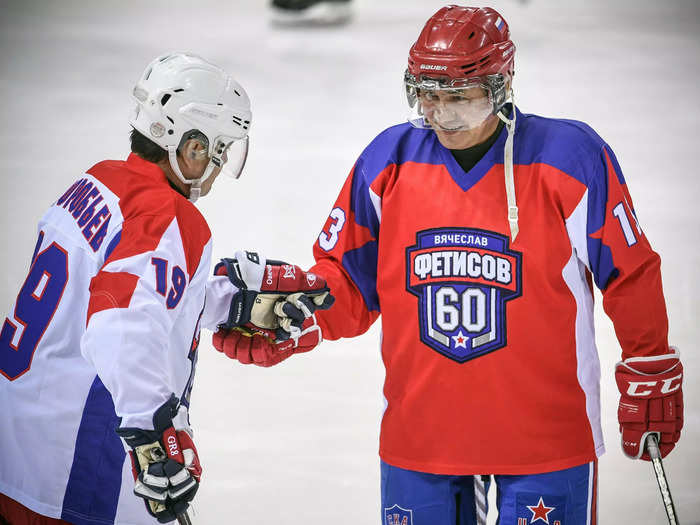
At one point in his career, Shoigu was touted to be the next prime minister.
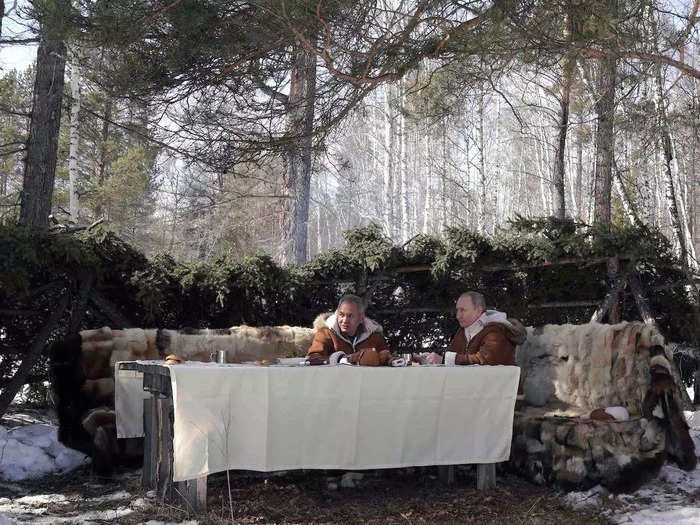
In the early days of his role as minister of defense, Shoigu was considered the second most popular public figure in the country and was even touted as Putin's potential successor.
Source: The Daily Beast
Shoigu is said to have a lavish lifestyle and owns a large mansion outside of Moscow estimated to be worth around $18 million.
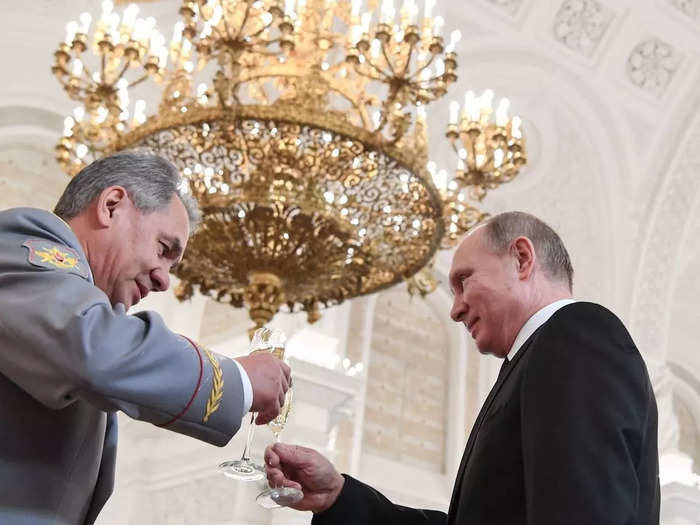
The investigative team of jailed Putin critic Alexei Navalny photographed Shoigu's home using high-tech drones in 2015.
Shoigu presides over a culture of corruption and embezzlement in the Russian military, according to some reports.
An investigation by the independent Russian news outlet The Insider in 2019 claimed that he earned 6.5 billion rubles ($101.9 million) from deals with the ministries of defense and emergency situations.
(The Insider is a separate publication from Insider.)
Shoigu was behind the invasion and annexation of Crimea in 2014 and was also one of the architects of Russia's intervention in Syria one year later.
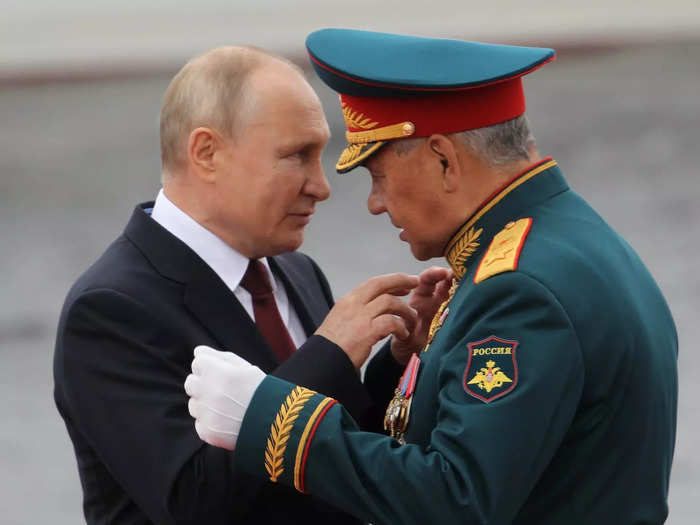
Source: CNBC, Los Angeles Times
One day after Russia's invasion, Shoigu was personally sanctioned by the West.
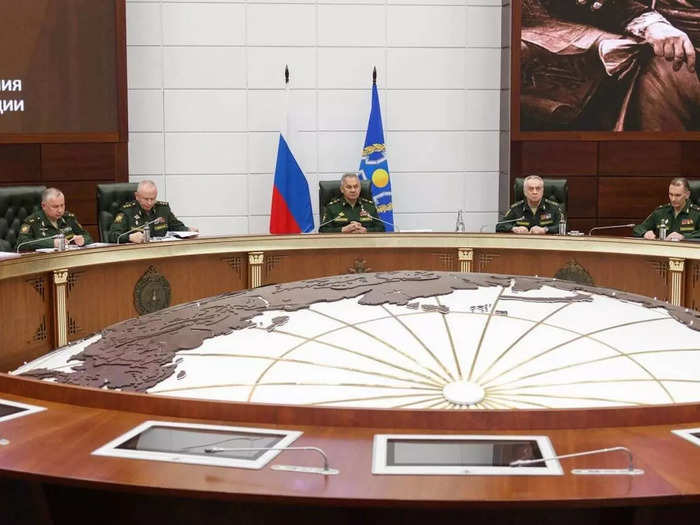
Other members of Putin's inner circle who were sanctioned alongside Shoigu included Minister of Foreign Affairs Sergei Lavrov and Chief of the General Staff of the Armed Forces Valery Gerasimov.
Source: Department of State, Politico
Several days before Putin's full-scale invasion in February, Shoigu met with British Defence Secretary Ben Wallace and denied Russia was planning to attack Ukraine.
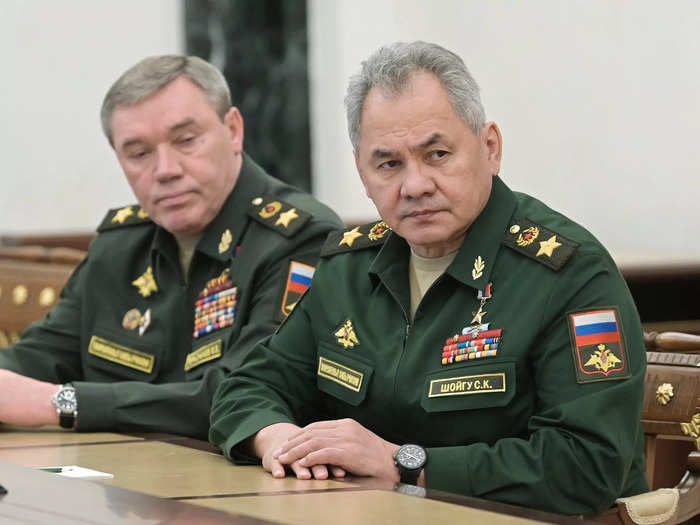
This was despite Western intelligence services publishing extensive evidence of Russian troops amassing near Ukraine's borders, and claims from figures including President Joe Biden that an invasion was inevitable.
Source: Reuters
But when Russia did invade on February 24, it did not pan out the way the Kremlin had planned.
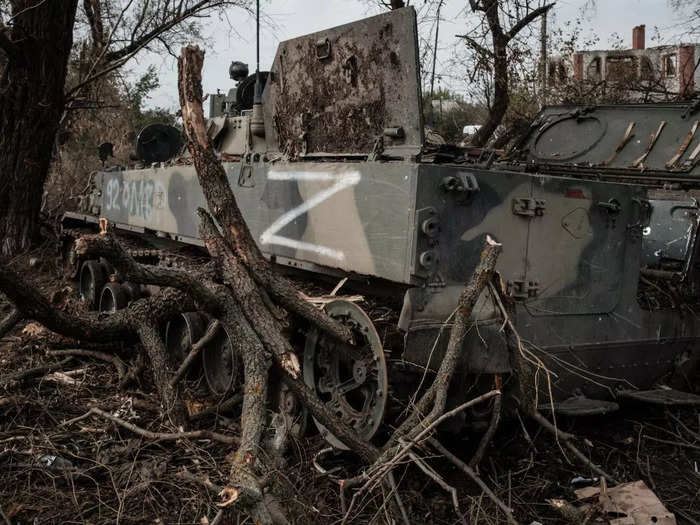
Russia seemed to expect it could take Ukraine's capital Kyiv in a matter of days, but failed to do so.
For months, their forces have struggled in the face of a staunch Ukrainian resistance that continues to receive more heavy weaponry from Western allies.
Russia's partial mobilization in October was also a sign that Shoigu's military was suffering from a severe lack of manpower.
The failures in Ukraine have led to claims of a rift between Shoigu and Putin.
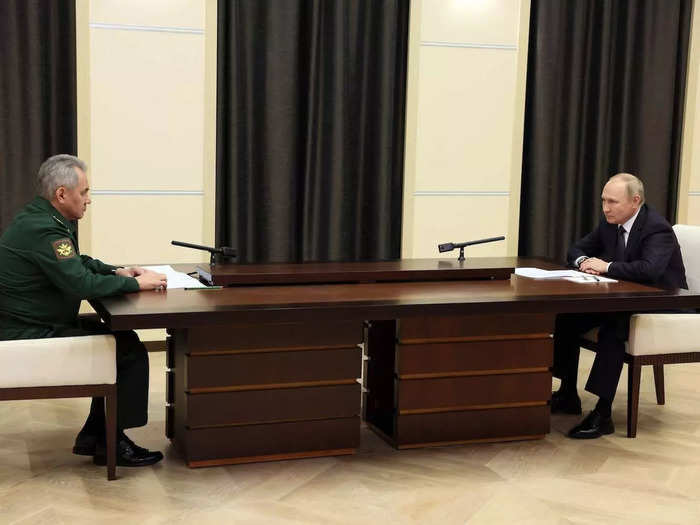
One month after Russia's invasion, there was "persistent tension" between the two friends after it emerged that Shoigu and his subordinates were sugar-coating reports of the war for Putin, The New York Times reported at the time.
In March, Shoigu wasn't seen in public for 12 days, prompting concerns over his whereabouts, The Guardian reported.
In August, Putin started to bypass Shoigu, further embedding himself into the war's strategic planning efforts, The Telegraph reported.
Source: Insider
Other prominent figures in the Kremlin have openly attacked Shoigu, including Russian oligarch Yevgeniy Prigozhin.
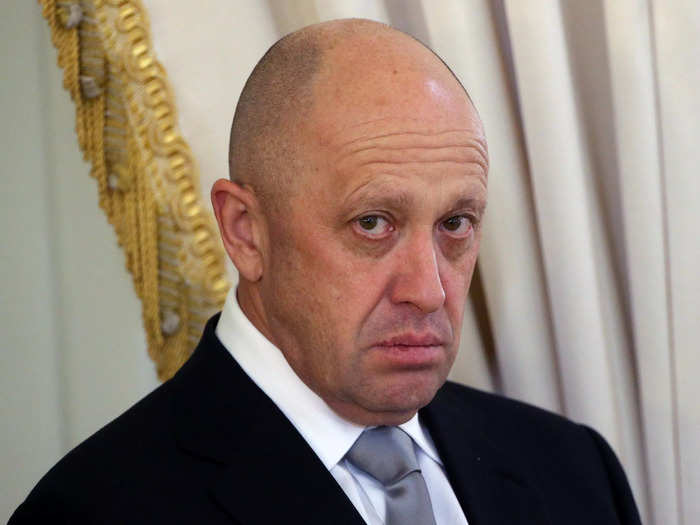
Yevgeniy Prigozhin, who founded the Wagner Group paramilitary, confronted Putin about the mismanagement of the war in Ukraine last month, two US officials familiar with the matter told The Washington Post.
Prigozhin later denied that he had spoken to Russia's president and said he has no right to criticize Russia's army.
Kirill Stremousov, a pro-Russia Ukrainian politician who was installed as Putin's puppet leader in the occupied Ukrainian region of Kherson, recently suggested Shoigu should consider killing himself over Russia's recent military losses.
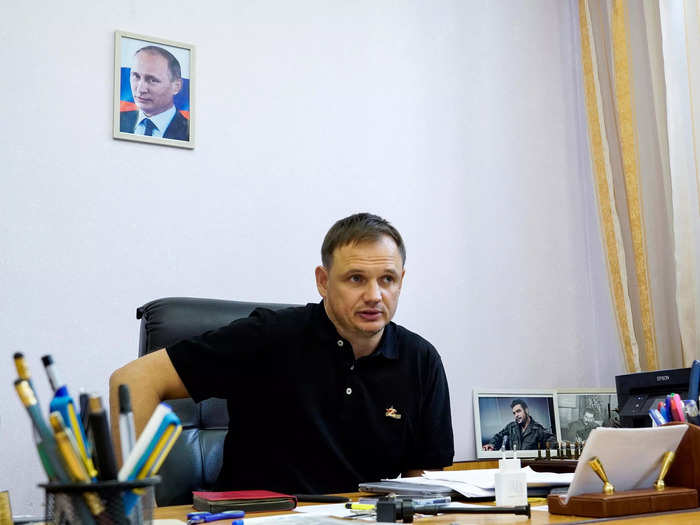
Source: Insider
"Shoigu is willing to basically be Putin's bulletproof vest," said Galeotti, the Russia analyst.
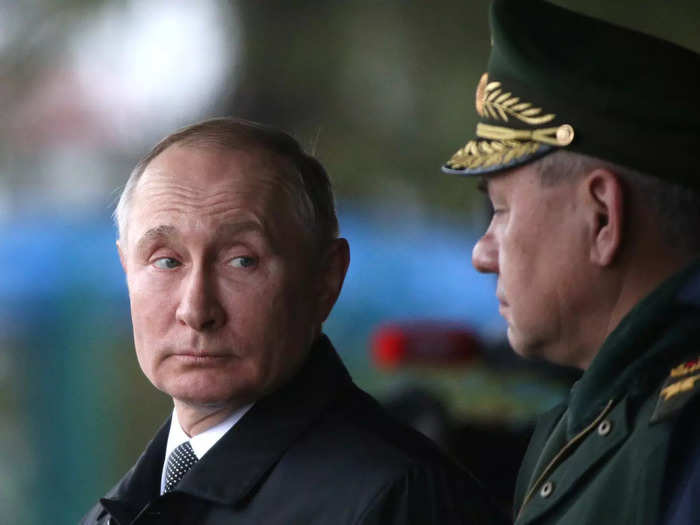
"He is soaking up all the criticism that, otherwise, people might start leveling towards Putin as commander in chief," Galeotti said.
Shoigu has remained quiet despite the growing criticism...
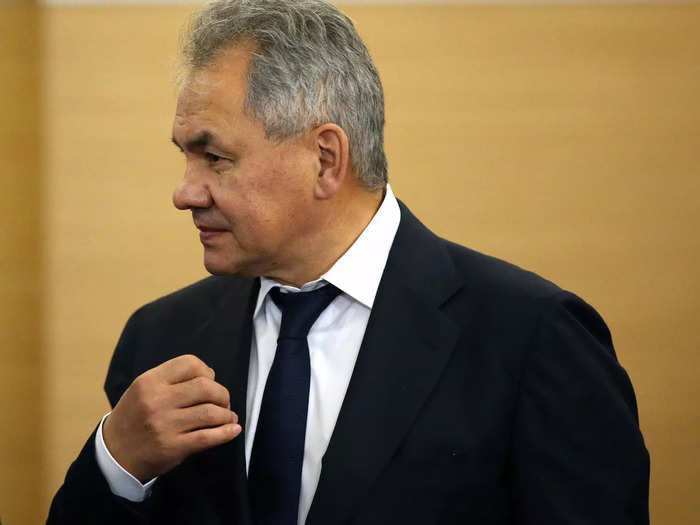
"He's been much less evident now," Galeotti told Insider.
"He knows that, when he goes into public, he either has to reassure people that everything's going fine, which is an increasingly untenable position to hold, or he'd have to acknowledge things are going badly, which would potentially sound like criticism of the commander in chief," he added.
... and Putin has shown no signs that he may fire him.
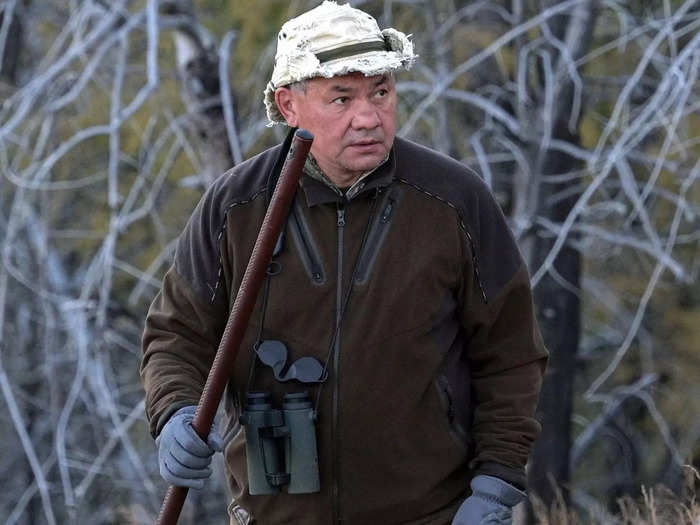
Galeotti told Insider that it is difficult for Putin to fire Shoigu because it is "a card he can only play once."
"If Putin absolutely felt that the situation demanded it, I imagine he would be willing to sacrifice Shoigu," he said.
"However, given that it's obviously not going to have any substantive impact on the progress of the war ... it will be harder avoid the suspicion that it's not because of Shoigu, but because of Putin."
Shoigu was last seen at a meeting with Putin, which was broadcast on state television on October 28.
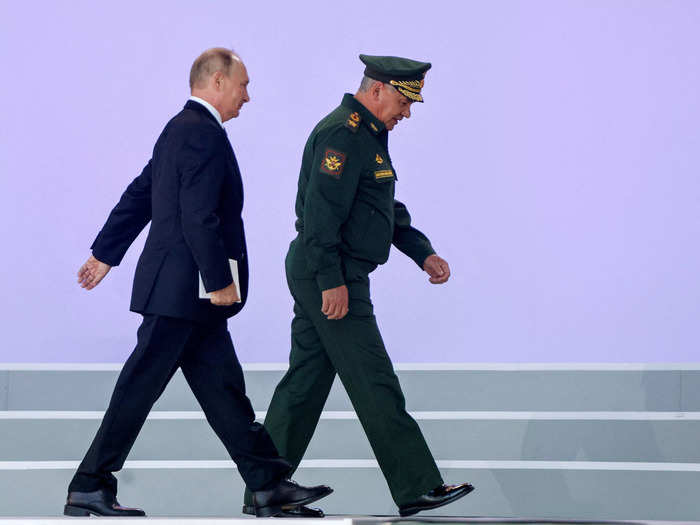
Shoigu told Putin that his goal to send 300,000 of Russia's reservists to fight in Ukraine, which he announced in October, "has been completed," Reuters reported.
Popular Right Now
Popular Keywords
Advertisement